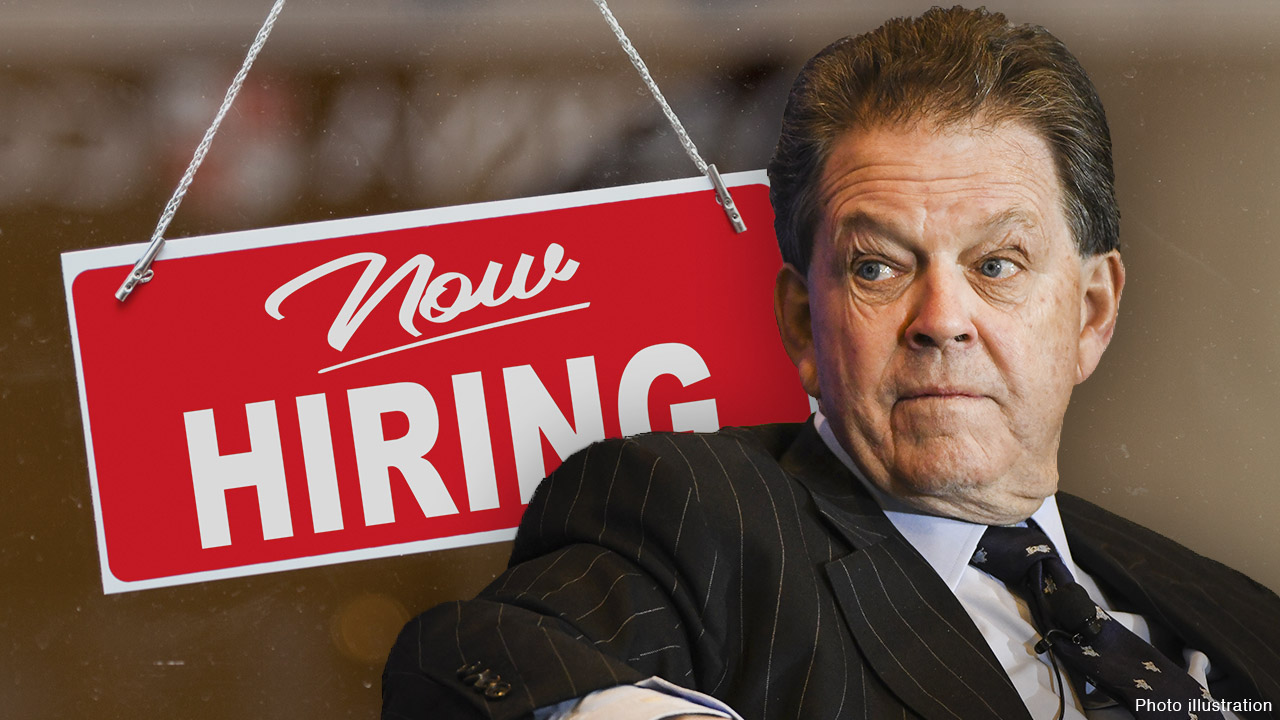Laffer 'terribly concerned' Biden policies a 'huge hindrance' to economic growth
Laffer counters Yellen's argument that 'bold fiscal policy' helped boost the economy post-pandemic
Art Laffer warns Biden's policies causing 'huge hindrance' to US economic growth
Former Reagan economist Art Laffer explains what he believes is needed to ensure long-term economic growth post-pandemic.
Former Reagan economist Art Laffer told "Cavuto: Coast to Coast" on Wednesday that he is "terribly concerned" about "long-run growth" of the U.S. economy, especially given the Biden administration’s policies.
Laffer argued that the American economy needs to "catch back up on the private sector" and all the government spending will "only hurt" the financial system.
Laffer made the comments shortly after a disappointing report on private-sector hiring was released.
The July ADP employment report showed private-sector hiring slowed sharply last month amid a rise in COVID-19 infections. U.S. firms added 330,000 new workers in July, down from 680,000 in June. The Labor Department will release the July nonfarm payrolls report on Friday.
Laffer pointed out that "the growth in jobs is not nearly enough to catch us back up to where we were" before the onset of the coronavirus pandemic.
He referenced his calculations, noting that "we would need something like 8 million jobs just to get back to where we were."
"Every month that comes out with a lower number than expected or a bad number, just makes it more further away from our goals to come back," he told host Neil Cavuto.
He then slammed the policies of the Biden administration, arguing that the boosted unemployment benefits discourage people from returning to work.
SURGING INFLATION COULD DERAIL ECONOMIC RECOVERY FROM PANDEMIC, IMF WARNS
"To give money to people not for working, but to give money to people for not working, obviously those funds come from people who do work, that’s a huge disincentive for people to go back to work and it’s a huge hindrance for the economy to continue growing," Laffer said.
The federal unemployment insurance benefit is set to expire in early September and provides $300 per week to those unemployed in addition to standard unemployment payments, which vary state by state.
At least 25 states decided in May and June to prematurely cut off the sweetened aid, a move they say will help businesses struggling to hire employees.
Job openings held near a record high in May, according to the Labor Department’s Job Openings and Labor Turnover Survey, or JOLTS, which noted that the number of job openings held little changed at 9.2 million.
On Wednesday, Laffer stressed rule 101 of economics: the law of supply and demand.
US will pay price for Biden, Yellen 'globalist tax scheme': Crowley
Former Treasury Department spokesperson Monica Crowley on the Biden administration and Treasury Secretary Janet Yellen pushing a global minimum tax rate.
"It’s not just demand that matters. You got to also have supply," Laffer said.
"Gross Domestic Product is in fact a supply measure," he continued. "If you restrict those supplies you’re just never going to grow and I’m terribly concerned about the long-run growth of this country."
GET FOX BUSINESS ON THE GO BY CLICKING HERE
Gross domestic product [GDP]– the broadest measure of economic performance – grew at a 6.5% annual rate during the second quarter, according to an advance estimate released last week by the Commerce Department. Analysts surveyed by Refintiv were expecting 8.5% growth. First-quarter GDP was revised down to 6.3% from its previous reading of 6.4%.
During a speech in Atlanta on Wednesday, Treasury Secretary Janet Yellen credited "bold fiscal policy" for the economy's faster-than-expected recovery from the COVID-19 pandemic.
She also acknowledged that the federal government needs to do more to address long-standing structural issues plaguing the economy, such as declining labor force participation, income inequality, the racial gap and the threat of climate change and called on lawmakers to approve both the $1 trillion bipartisan infrastructure bill, as well as partisan $3.5 trillion spending plan.
Laffer countered Yellen’s push for more government spending as a way to boost the economy, arguing that "what causes GDP growth is private spending, private production, private growth and output in employment and it is not really government focused."
Laffer on future of US economy: 'Terribly concerned about the long-run growth'
Former Reagan economist Art Laffer argues the American economy needs to 'catch back up on the private sector' and all the government spending will 'only hurt' the financial system.
He then pointed to historical data, noting that the economic recovery following the financial crisis of 2008 was "one of the most sluggish recoveries ever," which Laffer attributed to the stimulus spending.
He stressed that it is "a real bummer for the economy" that "these resources come from workers and they’re given to people who don’t work."
Laffer also stressed that federal stimulus also won’t help get people back in the labor force.
"They’re just not going to come back and you are not going to get the production," he warned.
CLICK HERE TO READ MORE ON FOX BUSINESS
FOX Business’ Jonathan Garber and Megan Henney contributed to this report.























